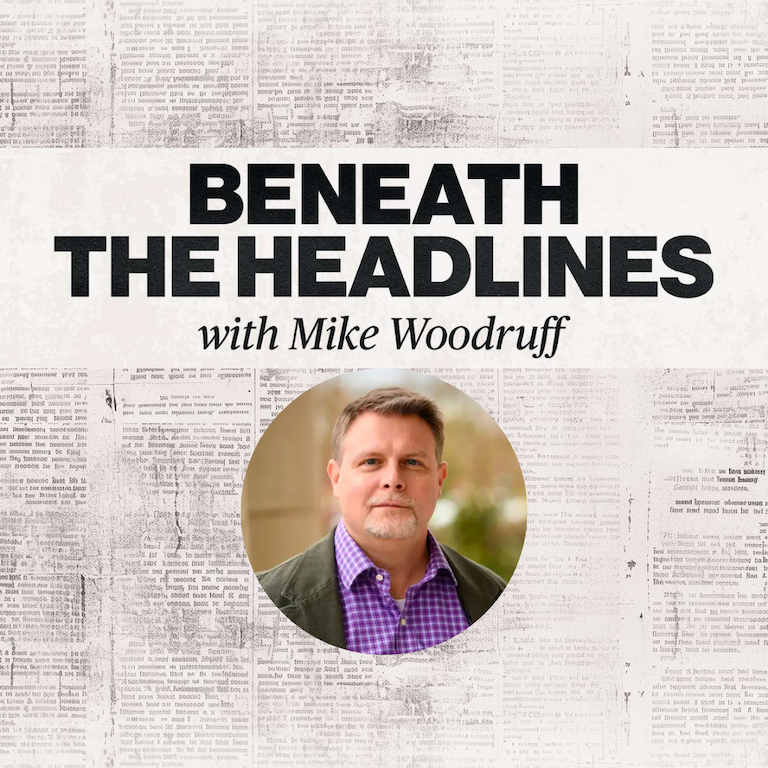More Power to You
In January, America witnessed another peaceful transfer of power. It’s noteworthy. Sixty-Eight modern countries have never peacefully transferred power via an election. It is even more rare in history. Leaders tend to acquire more and more power, not voluntarily relinquish their power or position.
Studies show most Westerners assume that powerful people are immoral. Whether that is you or not, I’d invite you to think about the power you have (been given) and what to do about it. But first, there are alternative stories of power worth highlighting.
Problems with Power
Money, observed by the likes of Plato and Machiavelli, is a power repeatedly used to manage and manipulate relationships. Recently, not buying a beer (Bud Light) and not buying a car (Tesla) became an exercise of power in response to power. Both sides are pulling economic levers to resist political agendas - detonating businesses and relationships. It’s a problem.
Power doesn’t just manipulate, it kills. Murderous expressions of unchecked power (think Stalin or Mao) mark history books -- even when they are erased from the pages. This is not only an ancient problem, modern slaves live powerless lives due to their slavemaster's control.
Robert Greene's NYT Bestseller, The 48 Laws of Power, alleges all humans hunger for power.
He writes, "the better you are at dealing with power, the better friend, lover, husband, wife, and person you become."
However, his “power laws,” might make your stomach churn or think you are reading satire.
Greene, whose book is hailed to be the Bible of Business, chronicles a frightening path forward. I selected 3 laws to help you feel some of the diabolical advice:
#7: Get Others to Do the Work for You, but Always Take the Credit: Get others to do your work for you. Use their skill, time, and energy to further your ambitions while taking full credit.
#15: Crush Your Enemy Totally: Crush your enemy completely. If you leave even one ember smoldering, it will eventually ignite.
#26 Keep Your Hands Clean: Conceal your mistakes, have a scapegoat around to blame.
Greene's ruthless and conquest-centered instructions are still selling in bookstores. Many readers replay their past business encounters through Greene's grid and find new insights.
Like Machiavelli and Sun Tzu before him, Greene defines the primal instincts that drive the human animal. Kill or be killed. Eat or be eaten. You might call it an origin story with a zero-sum outlook - it resonates because people experience it so often. All of life feels like an election vote - your candidate wins or loses. In the terms of Nietzsche (Greene’s favorite author), the world is one big grab for power. This becomes a story to live by, but it is not the only option.
Redeeming Power
Andy Crouch offers a counter narrative in Playing God: Redeeming the Gift of Power. From Genesis, you might call it an origin story, he shows power is humanity’s basic ability to make something of the world. Powerlessness, on the other hand, is the inability to take meaningful action. His account extends beyond the scope of this article but is worth reading to see how he sketches everything from the social architecture of power in institutions to personal practices that curb misuses of power.
Why does Crouch suggest power is worth seeking and stewarding? Ultimately, power is a gift from a powerful creator. God made the world and all that is in it.
You are called to make things too - changing the world around you. Called to make meaning - enriching the lives of others. You might stop and consider that too. This authority, argues Crouch, is central to exercising the image bearing capacity God uniquely granted humans.
All power is derivative, a gift received by the source of all power. It must be stewarded, not profaned. Jesus modeled what to do as he emptied himself of all but love and bled for Adam’s helpless race.
Love transfigures power. Power saves, not kills.
You are endowed with resources and positions that can administer justice and create environments where fellow image bearers flourish. The point is not how much or how little authority you have, but what you do with it. Again, Crouch – a Christian use of power requires risk and vulnerability. God shares power with us so we can transfer power to others.
The Abundance Approach
Your ability to read this results from power: the power of a phone or laptop or light of sun. We don’t think about it in those terms, but modern life runs on unseen power. If you read anything, someone empowered you to decode these symbols and receive meaning. We call this decoding reading. You likely don't have the same ability to make sense of these symbols: 先生とコーチ (Sensei to Kōchi). A few of you likely have the power to read Japanese and know it means teachers and coaches.
When you learn to read, you don't take power from a teacher. When you learn to throw a curveball, you don't "dominate" your little league pitching coach and extract their ability to throw the same pitch. The power multiplies. Crouch calls this “Power that creates more power.”
To be sure, it takes investment. Consider the kindergarten teacher or parent who re-reads Cat in the Hat the millionth time. It can be a slog. Still, the multiplying effect is like planting a tree that yields fruit year after year. This abundance mindset – when applied to power – undermines the Nietzschean quest for zero-sum dominance.
Alternative Laws of Power
If we exchange Greene’s laws for Crouch’s laws, we can re-narrate power. Greene < Crouch. I took the liberty of paraphrasing Playing God and his sequel, Strong and Weak:
#7: Get Others to Do the Work for You, but Always Take the Credit < Leadership does not begin with title or position, it begins the moment you are more concerned about others’ flourishing than your own.
#15: Crush Your Enemy Totally < True leadership requires vulnerability and risk for the sake of rescuing the powerless.
#26 Conceal Your Mistakes, Have a Scapegoat Around to Blame. < Jesus took the blame, became the scapegoat by a power that turned the page of history and raised the dead.
Living with Power
The Christian story reveals a different kind of power. The apostle Peter explains that God's divine power has given us everything we need for a godly life through our knowledge of him who called us by his own glory and goodness. (2 Pet 1:3). God’s power creates power in us for the sake of others.
The way we use power tells a story of what God is like: A God who clutches or empties, exploits or protects. How can you rightly order and use your power today?
Start small. Give up some “free time” to eat with someone “lower” in the organization. Limit your decision-making to allow others on the team to gain experience. Make an introduction in your network that doesn’t benefit you. Pray.
Dream big. Look at your org chart for asymmetrical power dynamics. Rethink your entire business model or payroll structure. End a conflict. Share your heart. Ask friends what you could do together that might expose you to meaningful risk - knowing desperate people often find God. Pray for an ambition that might take multiple generations to realize.
You have everything you need to start today. Whatever actions you take - more power to you, and others.
Sign up for our newsletter
Resources for the formation of wisdom on the last Saturday of each month. Try it out.



.jpeg)







